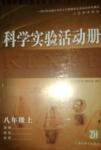ÌâÄ¿ÄÚÈÝ
New Rules and Behavior Standards(ÐÐΪ¹æ·¶) for middle school students has come out.
As a student, you¡¯re supposed to ________ according to it.
¢Ùtell the truth
¢Úfight against your classmates often
¢Ûbe open to new idea
¢Üprotect yourself
¢Ýcheat in the exam
A. ¢Ù¢Ú¢Ü B. ¢Ù¢Û¢Ý C. ¢Ù¢Û¢Ü
C
¡¾½âÎö¡¿¿¼²éÓëʵ¼ÊÓÃÓï½áºÏ ¸ù¾ÝѧУµÄÐÐΪ¹æ·¶£ºµ±È»ÊÇ¡°ËµÊµ»°£¬Ë¼Ï뿪·ÅºÍ±£»¤×Ô¼º¡±£¬²»ÄÜÊǺÍͬѧ´ò¼Ü»ò¿¼ÊÔ×÷±×ÁË¡£

 ¿ÆѧʵÑé»î¶¯²áϵÁдð°¸
¿ÆѧʵÑé»î¶¯²áϵÁдð°¸
Do you like drinking Coke? As a symbol of American culture, Coca-Cola is liked by many people, especially young people all around the world. But from now on, perhaps it will be hard for students in the US to get it on campus. A new agreement will end almost all sales of high-sugar fizzy drinks in US schools. The agreement allows only unsweetened juice, low-fat milk and water in primary and middle school vending machines£¨×Ô¶¯ÊÛ»õ»ú£©and cafeterias. Former American president Bill Clinton helped the American Heart Association and the beverage industry£¨ÒûÁÏÒµ£© to come up with the agreement. He suffered from a weight problem and has had a heart operation since leaving the White House. He takes the agreement as ¡°a bold step forward in the struggle to help 35 million young people lead healthier lives¡±.
Rising childhood obesity£¨·ÊÅÖ£©has become a big problem in America. A federal report noted that obesity has tripled among teenagers in the past 25 years. It called for new limits on the marketing of junk food to children. Soda is a particular target because of its caloric content and popularity among children.
Britain has already taken similar steps to fight obesity. A recent study shows that people in the UK are much healthier than the people in the US. However, it¡¯s better late than never. Now American schools are trying to make new rules to guide the students to choose healthy drinks. American schools say goodbye to Coca-Cola.
¡¾Ð¡Ìâ1¡¿What kind of beverage is NOT allowed to sell on campus?
| A£®High-sugar fizzy drinks. | B£®Unsweetened juice. |
| C£®Low-fat milk. | D£®Water. |
| A£®Became as much. | B£®Became twice as much. |
| C£®Became three times as much. | D£®Became four times as much. |
| A£®Positive. | B£®Neutral. | C£®Negative. | D£®Unclear. |
| A£®Coca-Cola causes students¡¯ obesity. |
| B£®Coca-Cola makes people unhealthier. |
| C£®Coca-Cola isn¡¯t very popular in the world. |
| D£®Coca-Cola is bad for our body. |
| A£®Say ¡°Goodbye¡± to Coca-Cola |
| B£®The Junk Coca-Cola |
| C£®Coca-Cola in China |
| D£®Coca-Cola in the World |
Every day in China, about 200 million children go to school. Many of them take school buses. What should we do to keep these students safe on the road?
On April 5, 2012£¬the State Council(¹úÎñÔº) published new rules about school bus safety. These new rules are stricter than the old ones.
Under the new rules, local governments must make sure that students go to nearby school or boarding schools to reduce traffic risks . Also, local governments must help kids in the countryside reach their school buses.
From now on, school buses have a speed limit of 80 km/h on highways and 60 km/h on normal roads. While on the road, other cars must let school buses go first.
The new rules also say that school buses must never be overloaded (³¬ÔصÄ).
There are many other rules as well. A school bus must have more than seven seats. On each bus, there must be at least one adult to keep an eye on the kids. Each school bus must have a fire extinguisher (Ãð»ðÆ÷), a first aid kit (¼±¾ÈÏä) and a GPS.
A series of school bus accidents happened in China in 2011. To stop such accidents, the Central Government decided to strengthen (¼ÓÇ¿) the rules for school buses.
The most serious accident happened in Gansu in November,2011. When a nine-seat minibus crashed. There were more than 60 children inside, and 21 of them died.
I hope such terrible things won¡¯t happen again and all of us can pay more attention to the safety of the students.
¡¾Ð¡Ìâ1¡¿What did the State Council publish on April 5, 2012?
| A£®New rules about school bus safety. |
| B£®New rules about student safety. |
| C£®New rules about student home. |
| D£®New rules about class. |
| A£®21 students died in school bus accidents in 2011 |
| B£®School buses in China were not safe enough before |
| C£®200 million children in China go to school by bus every day |
| D£®the government encourages all students to take school buses |
| A£®¹úÍâµÄ | B£®¹úÄÚµÄ | C£®¼ÄËÞµÄ | D£®½ÏÔ¶µÄ |
| A£®The most serious accident happened in 2011 in Gansu. |
| B£®A school bus must have more than seven seats. |
| C£®Local governments must help kids. |
| D£®Safety first on the school bus. |